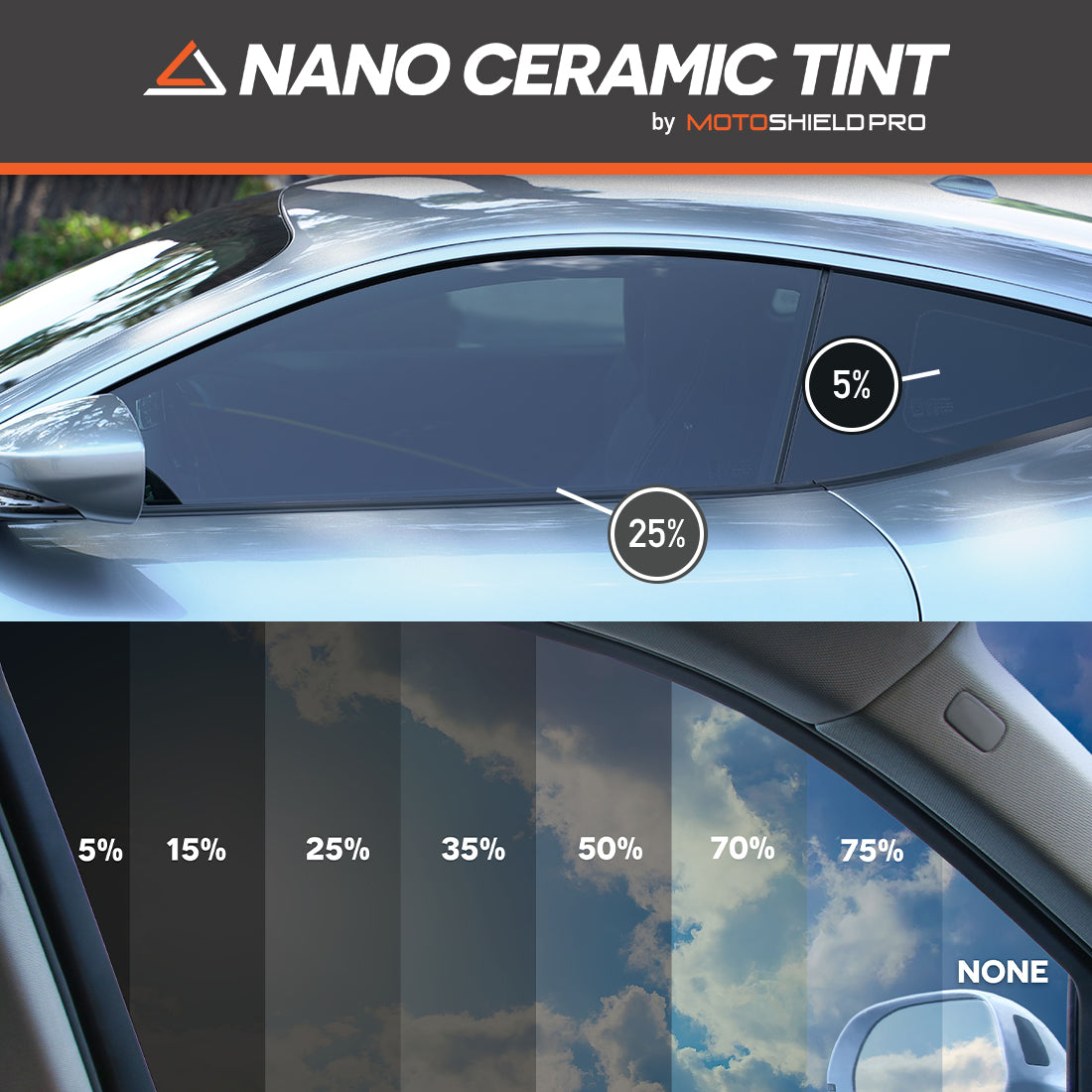Why Window Tinting Is the Best Solution for UV Protection and Glare Reduction
Why Window Tinting Is the Best Solution for UV Protection and Glare Reduction
Blog Article
Window Tinting Rules: What You Need to Know Prior To Tinting Your Car
Recognizing home window tinting legislations is important for any vehicle proprietor considering tinting their automobile. As you ponder improving your automobile's look and performance, it is important to comprehend not only the legal implications however likewise the functional considerations that come with selecting the right tint.
Relevance of Recognizing Color Laws
Understanding home window tinting laws is critical for automobile owners to guarantee conformity with state regulations. These regulations determine the permissible levels of color darkness and reflectivity, which can substantially differ from one jurisdiction to an additional. Stopping working to adhere to these policies can cause penalties, required removal of the tint, and prospective complications during lorry assessments.
In addition, understanding these regulations aids lorry proprietors make informed choices about their tinting alternatives. Different sorts of home window movies give various advantages, such as UV defense, warm denial, and glare decrease. Without knowledge of the legal limits, lorry proprietors risk picking items that might ultimately lead to legal problems.
Furthermore, recognition of tinting regulations cultivates a safer driving environment. window tinting. Exceedingly dark tints can hinder visibility, raising the risk of mishaps, especially at evening or in damaging weather. Regulation enforcement companies also make use of these policies to make certain road security, making compliance not just an individual duty yet a legal obligation
State-Specific Tint Rules
Each state in the U.S. has established its very own particular guidelines relating to window tinting, mirroring a varied array of criteria and demands. These laws can vary significantly, influencing just how lorry proprietors come close to installation and compliance. Some states permit darker tints on rear windows while imposing strict limitations on front-side home windows.
Additionally, laws commonly define allowable tint materials and colors. Certain states ban reflective tints completely, while others might enable them to a limited level. Some territories mandate that vehicles with colored home windows present a sticker suggesting conformity with state laws, supplying a clear recognition for regulation enforcement.
Enforcement of these regulations likewise differs; some states are much more positive, carrying out arbitrary checks, while others depend on problems or visible offenses to start enforcement. Vehicle owners should be mindful that failing to abide by state-specific color policies can cause penalties, required elimination of unlawful tints, or both.

Legal Tint Percentages
Figuring out the lawful color percentages is crucial for vehicle owners seeking to follow state regulations. Each state has specific laws governing just how much light has to go through the home windows of a lorry, which is shared as a percent referred to as Noticeable Light Transmission (VLT) This portion differs dramatically across states and can rely on the kind of window-- front side, rear side, and windscreen.
As an example, some states allow as little as 20% VLT on front side home windows, while others might allow up to 50%. Windscreen tinting is typically much more limited, with numerous jurisdictions enabling just a slim band of color at the top of the windshield. On the other hand, rear home windows generally have more lenient guidelines, with some states allowing darker colors.
It is crucial for vehicle owners to acquaint themselves with their regional regulations to stay clear of prospective lawful issues. This includes understanding just how VLT is measured, this article as it can differ based upon the sort of home window film made use of. Remaining educated concerning these policies ensures compliance and advertises secure driving problems for both the automobile owner and others when traveling.
Repercussions of Non-Compliance
Failing to adhere to home window tinting regulations can lead to substantial effects for lorry proprietors. The most prompt repercussion is the possibility for web traffic quits and citations from police. Officers trained to identify unlawful tint levels might provide penalties, which can vary by jurisdiction but typically range from modest to significant amounts. Repeated offenses might lead to raised penalties, consisting of higher fines or additional factors on a driver's certificate.

Insurer may likewise enforce charges for non-compliance, as unlawful adjustments can be seen as a breach of policy terms. If an occurrence takes place., this can influence protection prices or lead to difficulties in cases.
Ultimately, the repercussions of non-compliance prolong beyond prompt financial fines; they can impact a motorist's insurance coverage prices, lawful standing, and total lorry worth, highlighting the significance of adhering to local window tinting laws.
Tips for Finding Tinting Options
Recognizing the ramifications of non-compliance highlights the importance of making informed selections when selecting home window tinting options. To useful content start with, familiarize on your own with your state's details legislations pertaining to color darkness and reflectivity. Each state has special regulations that dictate the allowable restrictions, so guarantee you stay within these guidelines to stay clear of penalties.
Second of all, take into consideration the type of tint product. Alternatives consist of colored, metalized, and ceramic tints, each offering varying levels of warmth denial, UV defense, and toughness. As an example, ceramic tints supply premium warmth resistance without conflicting with digital gadgets, making them a prominent selection.
Additionally, evaluate your main purpose for tinting. If you seek improved privacy, choose for darker colors; nonetheless, keep in mind that this might influence exposure at evening. On the other hand, if glare decrease and UV protection are your major problems, lighter colors may be sufficient.
Finally, talk to a professional installer that is experienced concerning local laws and can advise premium materials matched to your requirements (window tinting). Taking these variables right into account will certainly guarantee you make a knowledgeable choice, eventually improving both your car's visual appeals and functionality
Verdict
Finally, familiarity with home window tinting regulations is essential click here to find out more before using color to an automobile. Each state applies details regulations regarding visible light transmission percents, specifically for front-side windows and windscreens. Non-compliance can cause significant charges, consisting of penalties and obligatory removal of non-conforming color. By recognizing lawful requirements and picking appropriate color materials, vehicle proprietors can achieve aesthetic improvement while continuing to be compliant with appropriate regulations. Adherence to these standards guarantees both safety and security and contentment.
Recognizing window tinting regulations is vital for any kind of vehicle owner considering tinting their cars and truck.Understanding home window tinting regulations is crucial for vehicle owners to make certain compliance with state regulations. Some states enable darker colors on rear home windows while enforcing strict restrictions on front-side home windows.
In contrast, back home windows commonly have more lax guidelines, with some states permitting darker tints. (window tinting)
In conclusion, familiarity with window tinting regulations is necessary prior to applying color to an automobile.
Report this page